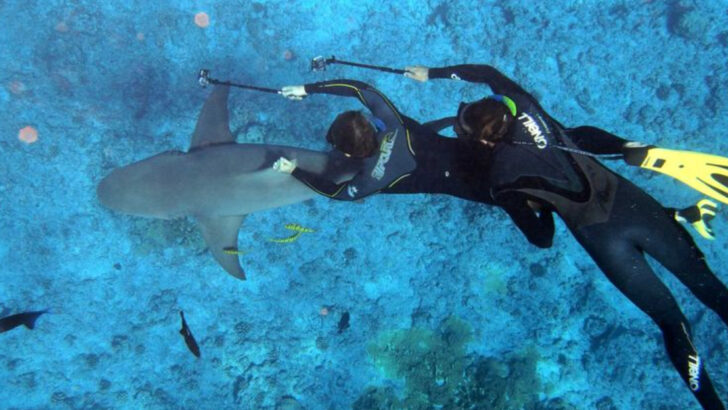Sharks have been framed for crimes they didn’t commit. Thanks to movies and sensational headlines, they’re seen as ruthless, bloodthirsty killers lurking beneath the waves, just waiting for their next victim. But the truth? It’s a whole different story.
These ancient predators aren’t mindless monsters—they’re calculated, cautious, and far more misunderstood than most creatures on Earth. They don’t spend their days hunting humans; in fact, they want almost nothing to do with us. More people are injured by vending machines each year than by sharks. Let that sink in.
So why do sharks get such a bad rap? And what’s the real story behind their behavior?
Get ready to dive into 13 reasons why sharks aren’t the villains pop culture made them out to be—and why the ocean would be a much scarier place without them.
Sharks Rarely Attack Humans
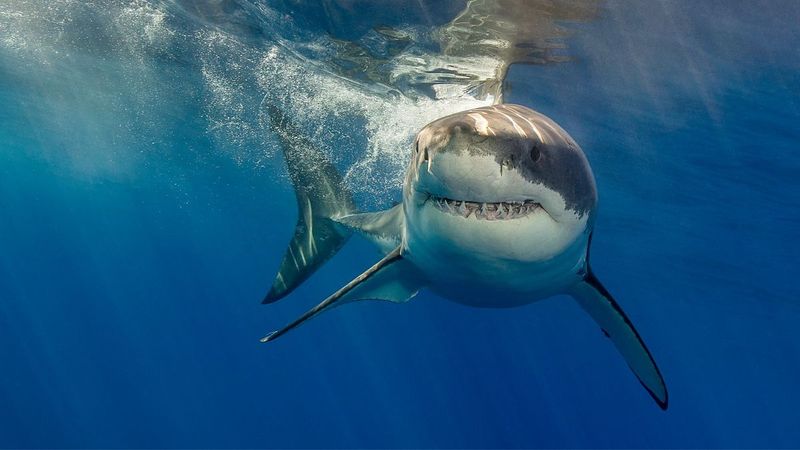
Sharks have often been misunderstood as aggressive hunters, but attacks on humans are incredibly rare. Most sharks, such as the gentle whale shark, pose no threat to humans. Even the great white shark, often depicted aggressively, rarely attacks people. When incidents occur, they are often cases of mistaken identity.
Sharks prefer feeding on their natural prey, like fish or seals, and humans are not on their menu. Encountering a shark while swimming or diving can be a peaceful experience, as they usually swim away when they recognize humans. Sharks’ reputation as man-eaters is largely unfounded.
Sharks Play Crucial Roles in Ecosystems
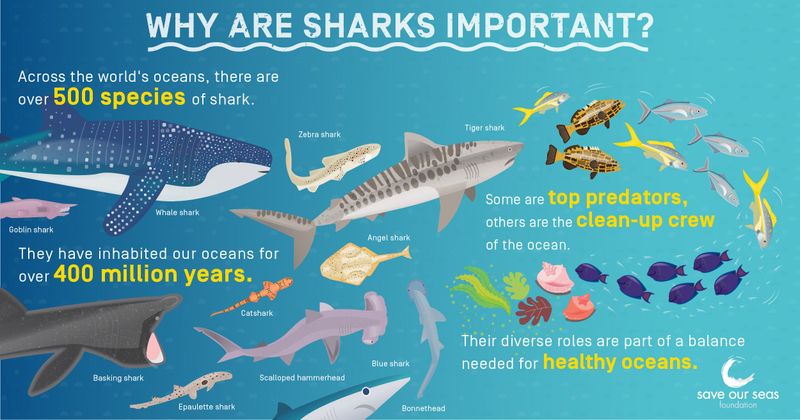
Sharks are vital to ocean health, often referred to as “apex predators” due to their role in maintaining balance. They help regulate species populations, ensuring a diverse and thriving marine environment. By preying on sick or weak animals, sharks contribute to the health of fish populations.
This natural selection process keeps ecosystems balanced and resilient. Without sharks, prey species could explode uncontrollably, leading to overgrazing and habitat destruction. Sharks’ presence is crucial for the stability of the food web, and their decline can have wide-ranging ecological impacts.
Sharks Have Diverse Diets
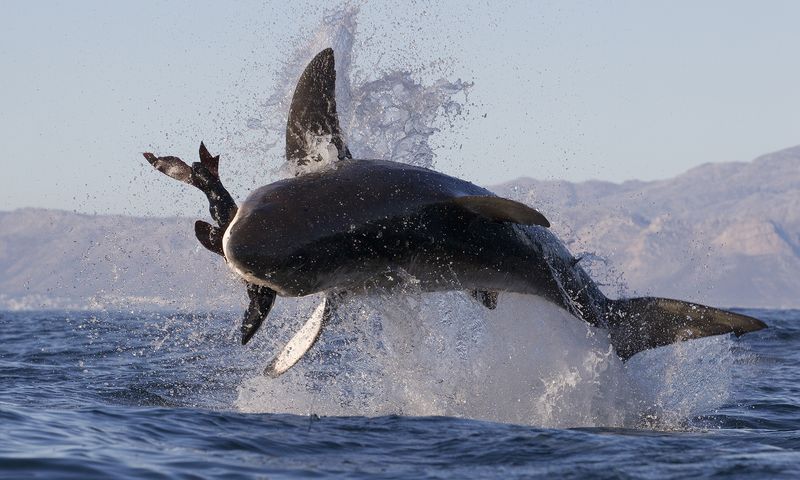
Contrary to popular belief, sharks do not solely hunt large prey. Their diets are diverse, including fish, plankton, mollusks, and even seagrass. Different species of sharks have evolved to feed on various food sources. For example, the hammerhead shark often hunts stingrays buried in the sand, while the whale shark feeds on plankton.
This dietary diversity helps distribute energy throughout the ocean ecosystem. Sharks’ feeding habits also influence the behavior and population dynamics of other marine creatures. Understanding these complex diets is crucial to appreciating their ecological roles.
Sharks Use Unique Hunting Techniques
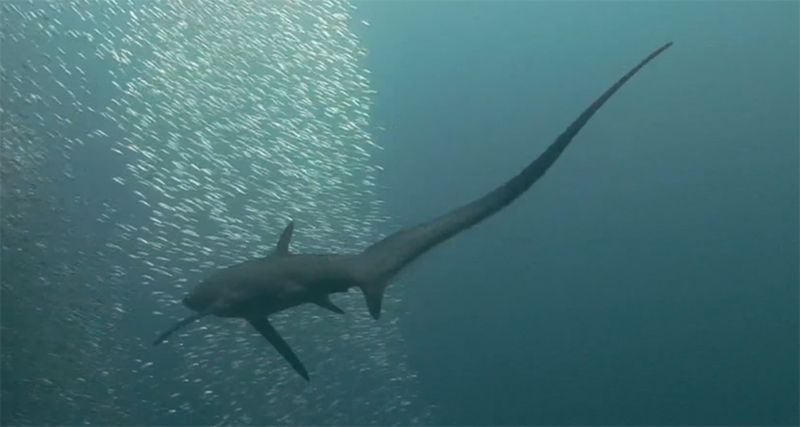
Sharks employ a fascinating array of hunting techniques tailored to their environment and prey. The great white shark’s breach hunting, where it leaps out of the water to catch seals, is one of the most dramatic examples. Meanwhile, the hammerhead shark uses its uniquely shaped head to detect prey hidden in the sand.
These specialized hunting methods demonstrate sharks’ adaptability and intelligence. They are not mindless hunters, but rather strategic predators. By studying these techniques, scientists gain insights into the evolutionary adaptations that enable sharks to thrive across diverse habitats.
Sharks Have Long Lifespans
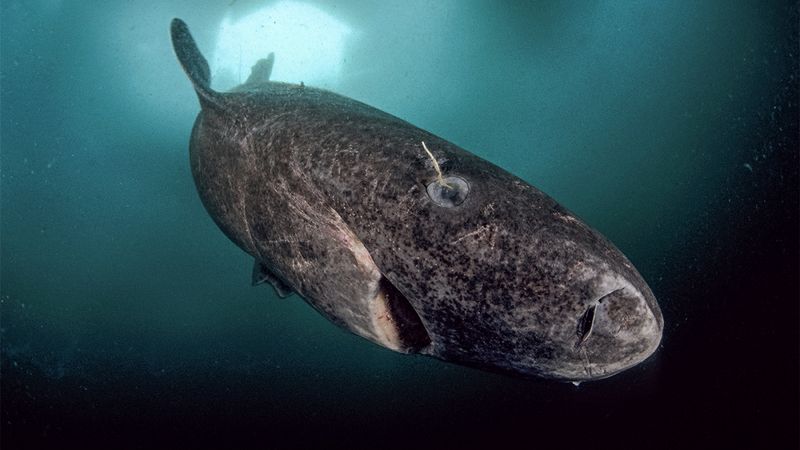
Sharks are among the longest-lived vertebrates, with some species living for decades, even centuries. The Greenland shark holds the record, living over 400 years. Their long lifespans are attributed to slow growth rates and late maturity.
This longevity allows sharks to play enduring roles in their ecosystems, contributing to long-term stability. However, their reproductive patterns make them vulnerable to overfishing and environmental changes. Protecting these ancient mariners is essential for maintaining ocean health, as their presence is integral to marine ecological balance. Long-lived sharks are living witnesses to our planet’s changing oceans.
Sharks are Highly Intelligent
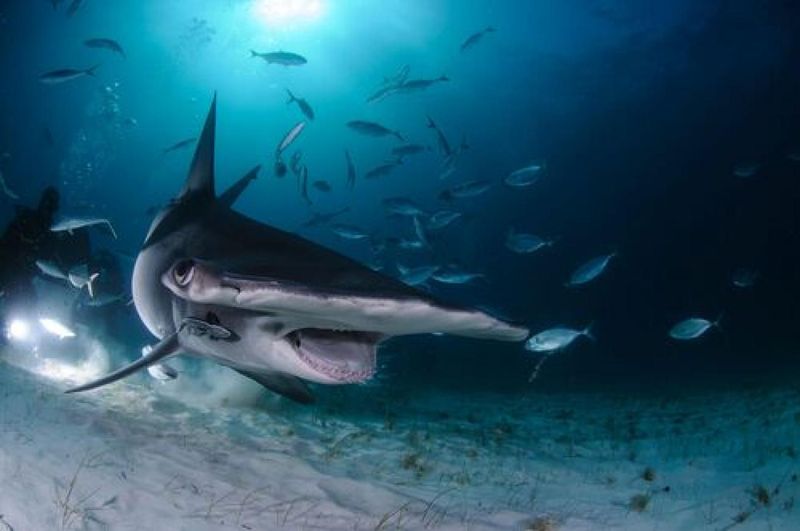
Sharks possess remarkable intelligence, capable of learning and problem-solving. They can remember complex patterns, navigate vast ocean distances, and adapt to new challenges. Their brains are highly developed for their size, comparable to some mammals.
This intelligence helps them navigate social interactions within their species, hunt efficiently, and adapt to environmental changes. Studies have shown that sharks can learn from experience and modify their behavior accordingly. Their cognitive abilities challenge the stereotype of mindless predators and highlight their sophistication as apex predators.
Sharks Exhibit Social Behavior
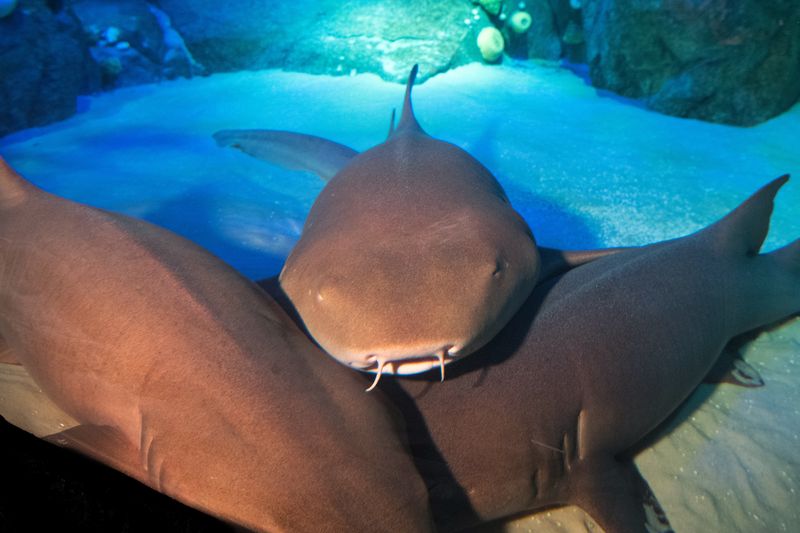
While often thought of as solitary creatures, many sharks exhibit social behaviors. They may form groups for hunting or protection, and some species display complex social hierarchies. These interactions can be observed in lemon sharks, which have been seen forming long-term social bonds.
Social structures among sharks can influence their hunting success and survival. Understanding these behaviors provides insights into their complex lives and the importance of social dynamics in marine ecosystems. These social interactions refute the notion of sharks as isolated predators, revealing their intricate social lives.
Sharks Have Conservation Issues
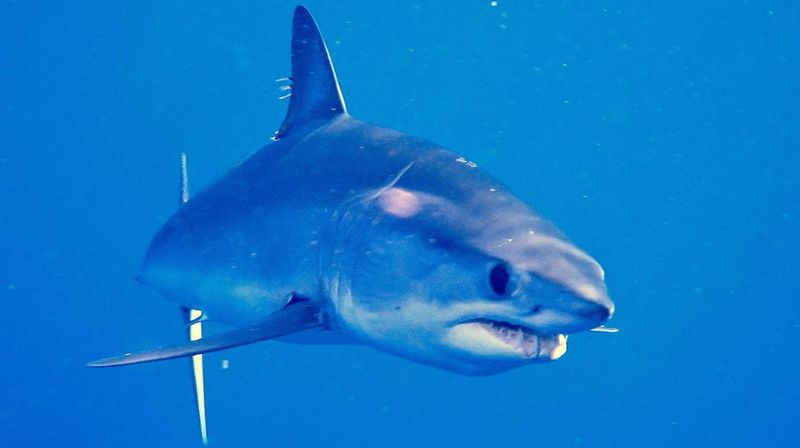
Sharks face significant threats due to human activities, such as overfishing, habitat destruction, and climate change. Millions of sharks are killed annually for their fins, meat, and bycatch. These practices threaten their populations, impacting ocean health.
Conservation efforts focus on regulating fishing practices, establishing marine protected areas, and raising awareness about sharks’ ecological importance. Supporting sustainable seafood choices and responsible tourism can aid in their preservation. Addressing these issues is vital to ensure sharks continue to play their critical roles in marine ecosystems. Sharks’ plight highlights the need for global conservation strategies.
Sharks Are a Tourist Attraction
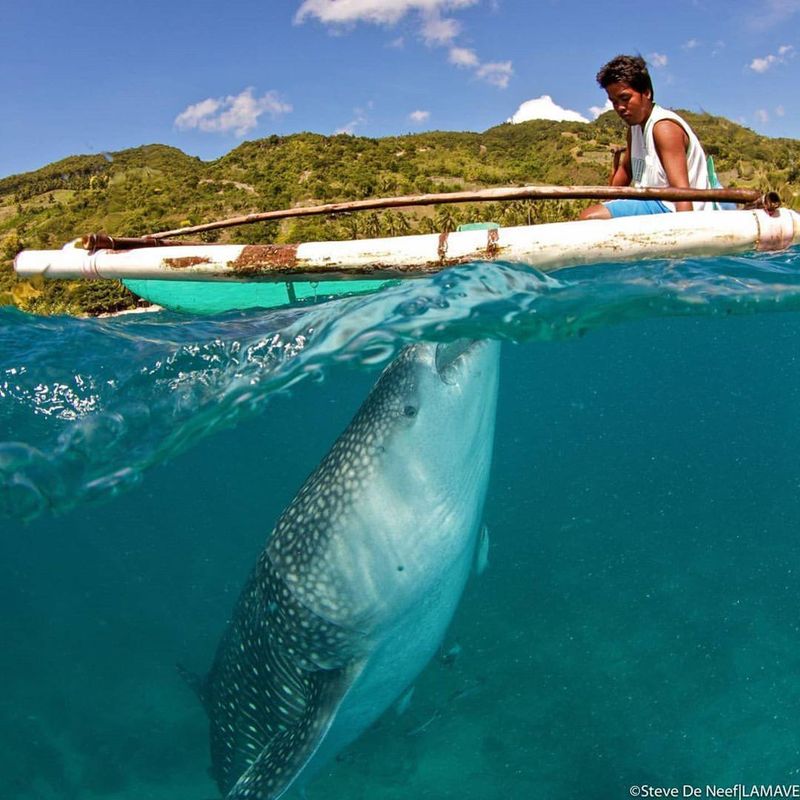
Sharks are a vital attraction for eco-tourism, drawing thousands of enthusiasts to destinations like the Bahamas and South Africa. Shark diving experiences offer unique opportunities to observe these majestic creatures in their natural habitat, fostering appreciation and understanding.
These activities promote conservation by highlighting the economic value of living sharks. Responsible tourism practices ensure that interactions are safe for both sharks and humans, contributing to local economies. By supporting eco-friendly tourism, we can protect sharks and their habitats, while enjoying the thrill of seeing these magnificent animals up close.
Sharks Have Unique Physiology
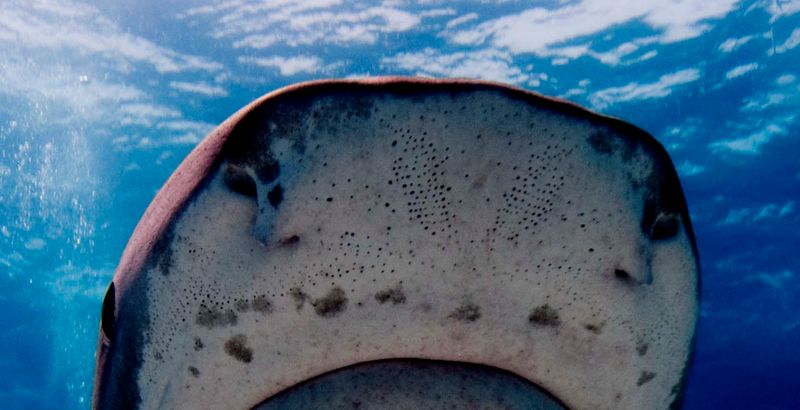
Sharks possess unique physiological traits that make them efficient predators. Their streamlined bodies allow swift movement through water, while their keen senses detect prey from great distances. The lateral line, a sensory organ, helps them sense vibrations and movement, crucial for hunting.
Their cartilaginous skeletons provide flexibility and strength, enabling agile maneuvers. These adaptations have evolved over millions of years, making sharks finely tuned to their environment. Understanding these physiological traits underscores the evolutionary success of sharks and dispels the myth of them being primitive creatures.
Sharks Are Essential for Scientific Research
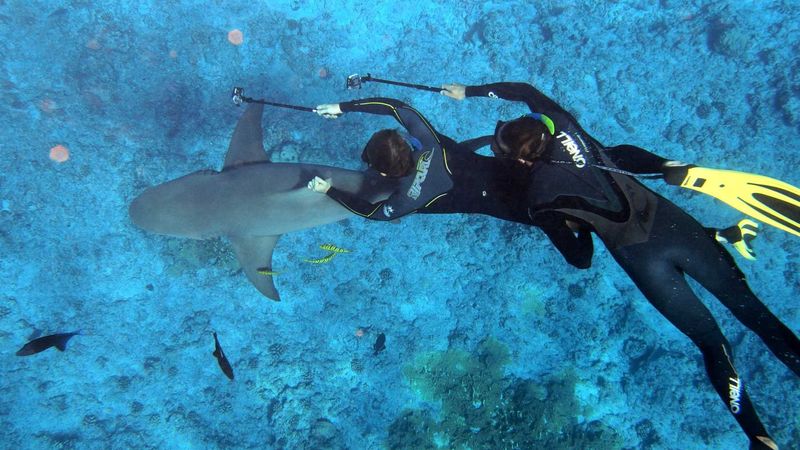
Sharks are invaluable to scientific research, offering insights into evolution, marine biology, and climate change. Their resilience and adaptability provide clues about life in harsh ocean conditions. Studying sharks helps scientists understand predator-prey dynamics and ecosystem health.
Research on their migration patterns and physiology aids conservation efforts and informs sustainable management practices. Sharks’ role in scientific discovery emphasizes their importance beyond their feared image. Supporting research initiatives can lead to breakthroughs in conservation and ecology, benefiting marine ecosystems worldwide.
Sharks Inspire Technology and Innovation

Sharks have inspired technological advancements, particularly in design and engineering. Their streamlined bodies and efficient swimming mechanisms influence innovations in underwater vehicles and robotics. The study of shark skin has led to the development of materials that reduce drag in water.
This bio-inspiration highlights the way nature’s designs solve complex problems. Engineers and scientists continue to look to sharks for ideas that can be applied to human challenges. By appreciating sharks’ natural ingenuity, we can foster innovation that respects and mimics the wisdom of the natural world.
Sharks Have Cultural Significance
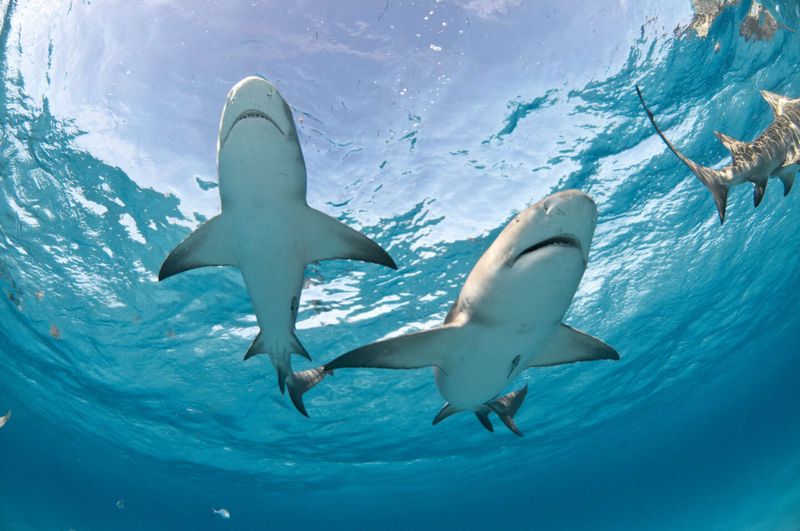
Sharks hold cultural significance across different societies, symbolizing strength, courage, and protection. Indigenous cultures often revere sharks as sacred animals, featuring them in mythology and art. In Hawaiian culture, sharks are considered ‘aumākua, or family guardians.
These cultural connections foster a deeper respect and understanding of sharks’ roles beyond their ecological impact. By exploring these cultural perspectives, we can appreciate sharks’ multifaceted presence in human life. Recognizing their cultural importance encourages conservation and respect, bridging the gap between humans and these majestic sea creatures.

